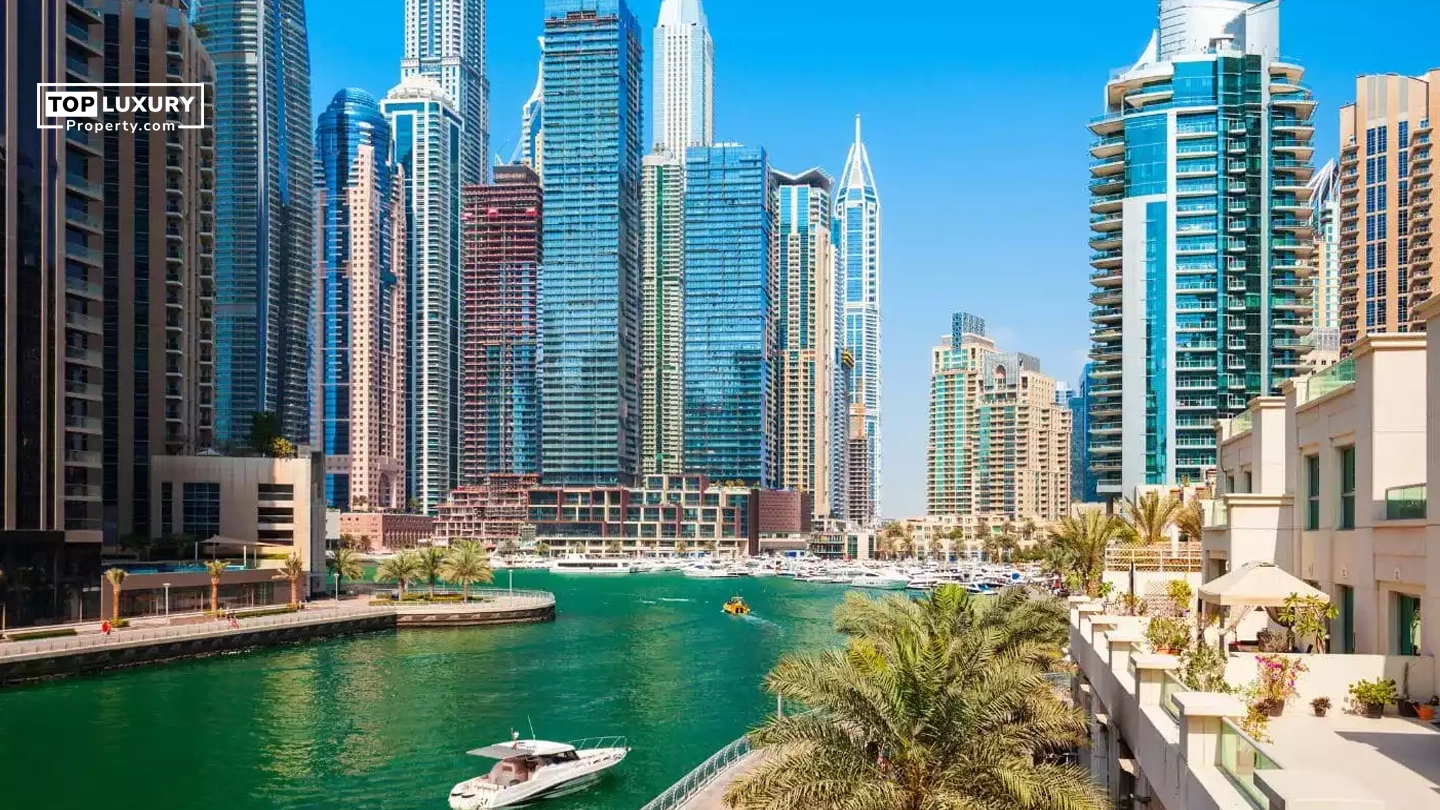Though purchasing property in Dubai from India may appear daunting, the right guidance and information can make it a straightforward and gratifying experience. In this blog, we will provide the information and steps needed to successfully negotiate the process of buying a property in Dubai from India with a skilful combination of perplexity and burstiness.
Why Do Indians Love Dubai’s Real Estate Market?
Under the Foreign Exchange Management Act (FEMA) of 1999, both Indian residents and non-residents can buy real estate abroad. Foreign nationals can also Buy Property In Dubai . Most property buyers come from India. Here are why Indians love Dubai’s real estate market:
High Rental Returns – Properties in Dubai generate average returns of 7% from rental income annually. This is significantly higher than markets like Singapore (2.5%), London (2.6%), New York (2.8%) and Hong Kong (2.3%). Indian investors can benefit from strong, stable rental yields from Dubai properties.
Appreciating Property Prices – Dubai real estate prices have steadily increased over the years due to strong economic growth and infrastructure development. Investing early allows Indian investors to benefit from capital appreciation on their investments.
No Taxes On Rental Income – Earnings from renting out properties in Dubai are not taxed, unlike in India or other markets. This ensures that Indian investors maximize their post-rental profits.
Easy Emigration Through Real Estate – Indian citizens who invest over AED 2 million or AED 5-10 million in Dubai property qualify for long-term residency visas of 5-10 years along with family. This provides an emigration option.
Proximity And Cultural Comfort – As Dubai is geographically and culturally close to India, Indian citizens feel comfortable investing, visiting/staying there. Over 2 million Indian expatriates in Dubai also create cultural familiarity.
Stable Investment Environment – Political stability and a well-regulated real estate market make Dubai a far less risky investment destination for Indians than other overseas markets.
Strong Economic And Trade Ties – India and Dubai/UAE share strong economic cooperation. Indians perceive Dubai as an important trade and business hub with growth opportunities.
Therefore, the combination of higher rental yields, residential mobility, tax benefits, cultural comfort and asset appreciation makes Dubai attractive for Indian real estate investment.
How To Buy Property In Dubai From India?
Here is the detailed investing process in Dubai Market from India:
Understand The Dubai Real Estate Market
Before plunging into the depths of the Dubai Real Estate Market , it is vital to become acquainted with the existing dynamics of the market. Dubai has experienced rapid growth and transformation in its real estate market over the past few decades.
Historical Overview
In 2002, Dubai allowed foreign nationals to own property, officially starting the real estate boom. Major development of areas like Palm Jumeirah took place. However, the global financial crisis in 2009 impacted Dubai, with villa and apartment prices falling significantly by 2010.
Current Market Size
Recent reports estimate the market size at over AED 240 billion in 2022, up 61% from 2021. Total sales transactions were 97,448 and the total value reached AED 265.51 billion, according to Emirates NBD Research.
Sales Activity in 2023
A significant 22% increase in transactions was reported by the market, with 31,216 transactions in Q3 2023 compared to 25,503 transactions in Q3 2022. In Q3 2023, the following types of properties were sold:
- 23,042 residential units
- 3,158 buildings
- 5,016 plots
Top Factors for Foreign Investment
Higher annual rental yields of 5.19% compared to other global cities attract investors. Dubai also has lower property prices per square meter. There are also zero property taxes, a safe environment, and a pathway to residency via investment amounts.
2024 Market Forecast
S&P Global has predicted that the United Arab Emirates’ economy will expand by 2.5% in 2023 and 2% in 2024. The UAE’s population is expected to increase by roughly 2% each year. The UAE’s robust residential property market is reflected in recent price increases of more than 60%. In Abu Dhabi, prices climbed by an average of 6%. Continued stable economic activity and investment prospects are fueling positive growth.
Determine Your Budget And Financing Options
Investing in a house in Dubai can be a substantial financial undertaking, so it is essential to thoroughly evaluate your current finances before purchasing. Explore down payment amounts, home loan eligibilities, and other associated costs like registration fees, property taxes, and maintenance.
Indian residents are also currently eligible to invest up to $250,000 in foreign properties under the Liberalised Remittance Scheme (LRS), which can help provide another potential source of funds for the down payment. The LRS allows residents to remit up to this amount overseas each year for approved purposes like purchasing a home.
Investigate the financing options available to Indian residents, such as Indian Banking home loans or financing from Dubai-based banks. Make sure to budget properly to ensure a sound financial decision.
Engage The Services Of A Reliable Real Estate Agent
To strategically traverse the real estate landscape in Dubai, you should enlist the expertise of a competent and experienced real estate agent. Select a professional whose area of speciality lies in the field of aiding foreign customers and one who retains a strong reputation. Their wisdom will be invaluable; they will lead you through the procedure and provide options that meet your criteria and expenses
Research And Shortlist Suitable Properties
Work closely with your real estate agent to research and shortlist properties that align with your preferences, location preferences, and budget. You must ensure that the professional is registered with the Real Estate Regulatory Authority (RERA). Visit property websites, browse listings, and utilize online platforms to understand available options comprehensively. Make a list of potential properties to visit during your visit to Dubai. Some noteworthy projects include:
- Jumeirah Lake Towers
- Dubai Hills Estate
- Downtown Dubai
- Arabian Ranches
- The Meadows
- Palm Jumeirah
- Dubai Marina
Visit Dubai And Inspect Properties
Once you have shortlisted properties, plan a visit to Dubai to inspect them personally.
- Shortlist 5-7 properties that meet your key criteria, like location, size, budget, etc., based on online listings and brochures.
- Block out 2-3 days in your calendar for property visits. Allocate 60-90 minutes per visit, including travel time, allowing you to see 3-5 properties a day.
- Confirm visit times and addresses with your real estate agent. Make sure to have their contact number on hand.
- During the visit, spend 10-15 minutes visually inspecting each room and common areas. Note the total square footage and number of bedrooms/bathrooms.
- Allocate 5-10 minutes to check the building amenities like gym, pool, security, parking etc. Jot down the facilities and their conditions.
- Ask your agent 3-5 questions about fees, maintenance, occupancy, and any other concerns you have. Note their responses.
- At the end of each visit, rate the property on factors like location, condition, and value for money on a scale of 1-10.
- After all visits, review your notes and shortlist the top 2-3 options. Reach back out to your realtor to start negotiations if desired.
Understand The Legal And Documentation Process
Buying property in Dubai involves certain legal and documentation processes. Familiarizing yourself with these procedures is essential to ensure a smooth transaction. Seek professional advice from a lawyer or legal consultant specialising in Dubai real estate laws. They will guide you through the legalities, paperwork, and documentation required for the purchase.
Understand Visa And Residency Requirements
When buying property in Dubai, it’s essential to consider the visa and residency requirements for Indian investors. Familiarize yourself with the different visa options available, such as the investor or retirement visa, and the eligibility criteria associated with each. Consult with immigration experts or government authorities to understand the process, documentation, and any financial obligations related to obtaining a long-term residency permit in Dubai.
Secure Financing And Make An Offer
- If requiring financing, get a pre-approved loan amount from 2-3 banks/financial institutions. This helps assess your maximum eligible budget.
- Submit the completed home loan application form along with supporting documents like salary slips, bank statements, and IDs to the chosen lender.
- The lender will conduct background checks and property valuation, which takes 7-10 working days.
- Once loan processing is complete, you will receive the loan approval letter stating the approved amount (usually 80-90% of property value).
- Discuss the offer price with your realtor which is usually 2-5% below the asking price. Prepare a written purchase offer letter with your signature.
- Your realtor will present the offer to the seller and negotiate on 4-6 major points like price, possession date, including furnishings, etc.
- If terms are agreed orally, your legal advisor will draft a 6-10 page standard sale purchase agreement covering 15-20 clauses and warranties.
- Carefully read the agreement 2-3 times and clarify any queries you have to your legal advisor before signing with 2-4 counterparts.
- Once both buyer and seller sign, the purchase process will commence as per the terms in the agreement.
Complete The Purchase And Registration Process
Once the offer is accepted, you must complete the purchase and registration process. This involves paying the down payment, arranging the remaining funds, and completing the necessary paperwork. Engage the services of a qualified conveyancer to oversee the legal aspects of the transaction and ensure a smooth transfer of ownership.
Post-Purchase Considerations
After completing the purchase, there are a few important post-purchase considerations. Set up utility connections, arrange for property insurance, and familiarize yourself with the rules and regulations of the community or building where your property is located. If you plan to rent the property, understand the rental laws and requirements.
Seek Guidance on Exchange Control Regulations
As an Indian investor, it’s important to know the exchange control regulations that may apply when transferring funds from India to Dubai for property purchases. Familiarize yourself with the guidelines and restrictions imposed by the Reserve Bank of India (RBI) and the UAE Central Bank to ensure compliance. Seek guidance from authorized banks or financial advisors to navigate the foreign exchange processes smoothly and efficiently.






